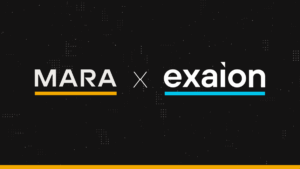TL;DR
- XY Oracle (XYO) validates geospatial data in a decentralized manner, protecting users’ privacy by allowing them to control their location.
- Beldex (BDX) ensures anonymous transactions through ring signatures and stealth addresses, protecting users’ financial identity.
- OriginTrail (TRAC) optimizes data exchange in supply chains, ensuring that sensitive information is protected and handled with transparency.
XY Oracle (XYO), Beldex (BDX), and OriginTrail (TRAC) are projects that address unique challenges within the blockchain ecosystem, but they all share a focus on decentralization and technological innovation. Each offers distinct solutions, from geospatial data validation to privacy protection in transactions and transparency in supply chains.
Let’s get to know each one and what makes them so special in pursuit of meeting the goal of privacy and decentralization of the blockchain.
XY Oracle (XYO)

XY Oracle is a decentralized network designed to collect and validate geospatial data in real-time. Through physical devices acting as nodes, the network ensures the authenticity of the data through cryptographic proofs, facilitating its integration with decentralized applications.
The XYO Coin incentivizes both data contributors and users. This approach not only enhances location accuracy and object tracking, but it also opens the door to innovative use cases in logistics and transportation.
Beldex (BDX)
On the other hand, Beldex Coin is a privacy-focused cryptocurrency. Thanks to advanced technologies such as ring signatures and stealth addresses, Beldex ensures that the details of each transaction remain completely anonymous.
Its proof-of-stake model allows users to contribute to the security of the network while earning rewards, and its bridge to other chains expands the usability of its token without compromising confidentiality. Beldex could be an innovative solution to the growing and constant threats to financial privacy.
OriginTrail (TRAC)

OriginTrail Crypto (TRAC), for its part, uses blockchain technology to solve fragmentation problems in supply chain data. Its protocol facilitates secure and transparent information exchange between the involved parties, ensuring the quality and authenticity of the products. With the TRAC token as the incentive engine, OriginTrail optimizes asset management and fosters trust in sectors like the food and pharmaceutical industries.
How Do They Help Protect Users’ Privacy?
Although each of these projects addresses unique challenges, they all contribute to improving users’ privacy in different contexts. Privacy, beyond being a fundamental right, is also an essential pillar to ensure security and autonomy in the digital economy we live in. These three projects offer innovative approaches to protect personal data and reinforce individual and personal control over information.
Beldex ensures that the details of transactions, including amounts and the parties involved, remain completely anonymous. Its implementation of RingCT eliminates direct traceability, making each operation unique and undetectable. It is a project that responds to the need for a monetary system that does not compromise the identity of its users.
OriginTrail ensures that the data shared between businesses and consumers is authentic, secure, and handled with transparency. The exchange of information is conducted with robust protection measures, so that sensitive data, both from end users and organizations involved, is not exposed to unnecessary risks.
XY Oracle contributes to privacy from the perspective of geospatial data decentralization. Instead of relying on centralized systems that often collect and store large amounts of information without users’ explicit consent, XYO allows individuals to control how and when they share their location.
The network’s nodes operate anonymously, ensuring that interactions are validated without revealing sensitive information. This is especially valuable in a world where location data has become a commercially exploited resource.
Regaining Control Over Our Information
Together, these projects provide an unprecedented level of privacy. We live in a world where personal data is continuously exploited without our consent. These solutions highlight the importance of prioritizing technologies that place users at the center, returning control over their information. Privacy is not just a right; it is the foundation for building a future that respects the freedom and dignity of every individual












